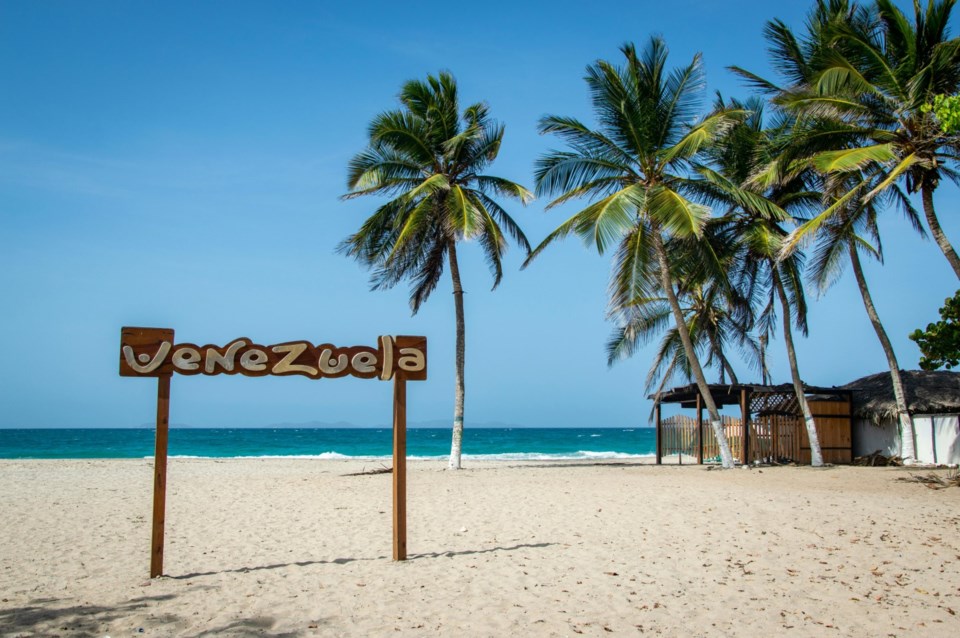Freedom is fragile. As Ronald Reagan famously said, “Freedom is never more than one generation away from extinction. We didn’t pass it to our children in the bloodstream. It must be fought for, protected, and handed on for them to do the same.”
That hard truth stood out to me during a recent conversation with Ana Rizzo, president of Ladies of Liberty Canada. Her firsthand experience with Venezuela’s tragic decline drives home just how quickly a country can lose its freedom if it’s not constantly defended.
Venezuela didn’t fall into dictatorship overnight. It was a slow and deliberate process, as each corrupt move by the regime was justified in the name of the “greater good.” This is precisely how freedom is lost – piece by piece, often unnoticed until it’s too late. As Ana told me, the country’s latest election, held on July 28, was nothing more than a sham.
Despite clear evidence that opposition leader Edmundo Gonzalez had won, President Nicolas Maduro declared himself the victor. This kind of blatant power grab is just another step in Venezuela’s long fall from democracy to dictatorship.
What makes it even worse is how Maduro’s regime set the stage for this fraud well in advance. They didn’t just manipulate the vote – they made sure the real opposition leader, Maria Corina Machado, couldn’t even run. She was banned from campaigning, unable to travel, and effectively silenced. Imagine if, here in Canada, the government decided to bar the opposition leader from running in an election. It sounds impossible, but that’s the terrifying reality for Venezuelans.
What really struck me in my conversation with Ana is the courage of the Venezuelan people. Thousands of citizens, knowing full well the risks, organized themselves to document the election fraud. These people could be imprisoned or worse, yet they chose to stand up and fight for their country. Their bravery is a powerful reminder that freedom is not a given – it must be fought for, just as Reagan warned.
And this is where the lessons from Venezuela hit close to home. The erosion of democracy in Venezuela didn’t happen overnight; it started with small steps that were justified as necessary. We’ve seen similar patterns here in Canada – the invocation of the Emergency Measures Act during the trucker protests, for example, or the growing push to regulate online speech in the name of fighting “misinformation.” These might seem like isolated incidents, but they should serve as warning signs.
As Reagan said, freedom must be fought for and protected or it risks being lost within a generation.
What’s happening in Venezuela is more than just a distant tragedy – it’s a wake-up call. Nearly eight million Venezuelans have fled their country, and those who remain face starvation, political oppression, and the daily risk of imprisonment. It’s a stark reminder that freedom, once lost, is almost impossible to regain.
The message is clear: if we want to keep our freedoms, we must fight for them now, not later. Sitting back and assuming it can’t happen here is the surest way to let it slip through our fingers. Venezuela’s story shows us what happens when people stop paying attention. Again, to paraphrase Reagan, freedom isn’t passed down automatically – every generation must protect it, or we risk losing it entirely.
What’s happening in Venezuela could happen anywhere. The federal government’s tactics are all too familiar – manipulating the media, stifling free speech, and controlling the narrative. We need to be aware of these warning signs and take action before we start seeing them here in full force. The slightest infringements on our rights, whether speech, assembly or even online expression, set a dangerous precedent. We cannot afford to be complacent, assuming it can’t happen in a free society like ours.
As Canadians, we must remain vigilant. We cannot afford to believe that our democratic institutions are unbreakable. They are as fragile as the freedoms they protect, and they require our participation and defence.
Let Venezuela serve as a reminder: the fight for freedom never ends, and we must be prepared to defend it vigorously.
David Leis is the Frontier Centre for Public Policy’s vice president for development and engagement and host of the podcast.
©
The commentaries offered on �鶹��Ƶ.ca are intended to provide thought-provoking material for our readers. The opinions expressed are those of the authors. Contributors' articles or letters do not necessarily reflect the opinion of any �鶹��Ƶ.ca staff.




